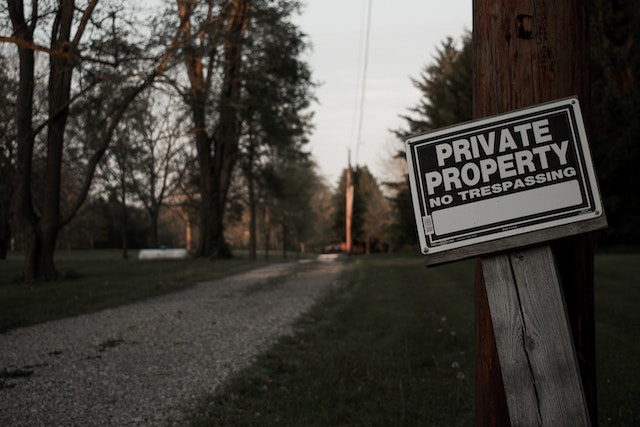Understanding Private Property Laws in Texas
Private property laws in Texas govern the rights of property owners and the limitations on those rights. Understanding these laws is crucial for individuals who may find themselves involved in criminal cases related to private property, such as DUI incidents. Texas law stipulates specific regulations regarding the use and protection of private property, which can significantly impact legal outcomes.
For example, Texas Penal Code outlines the legal definitions of property offenses and the rights of property owners to defend their premises. This includes the right to use reasonable force to protect one's property, which can intersect with criminal charges like DUI. Familiarizing oneself with these laws can provide essential insights for anyone facing legal challenges in this area.
Common Criminal Charges Related to Private Property
Individuals may face various criminal charges when incidents occur on private property, including DUI, trespassing, and vandalism. Each type of charge carries its own legal implications and potential penalties, making it vital for defendants to understand the specific allegations against them. DUI charges, for instance, can lead to severe consequences, including fines, license suspension, and even imprisonment.
Moreover, the context of the incident—such as whether it occurred on a private residence or commercial property—can affect the severity of the charges. Legal representation is essential for navigating these complexities and ensuring that defendants' rights are protected throughout the legal process.
The Importance of Legal Representation in Private Property Cases
Securing legal representation is crucial for anyone facing criminal charges related to private property. An experienced attorney can provide guidance on the legal process, help build a defense strategy, and advocate for the best possible outcome. The nuances of private property law require a knowledgeable approach to effectively address the specific circumstances of each case.
For instance, a skilled attorney can analyze the details surrounding a DUI charge on private property, identifying potential defenses such as lack of evidence or improper procedure by law enforcement. By leveraging their expertise, clients can better navigate the complexities of the legal system and work toward a favorable resolution.
Potential Defenses Against DUI Charges on Private Property
When facing DUI charges on private property, various defenses may be available to challenge the prosecution's case. Common defenses include questioning the legality of the traffic stop, challenging the accuracy of breathalyzer tests, and arguing that the individual was not operating a vehicle in a public space. Each defense strategy must be tailored to the specifics of the case to be effective.
Additionally, demonstrating that the individual was on private property and not endangering others can sometimes mitigate the charges. Legal counsel can help identify the most appropriate defenses based on the facts of the case, ultimately aiming to reduce penalties or achieve a dismissal of the charges.
Understanding Private Property Laws in Texas
Private property laws in Texas govern the rights of property owners and the limitations on those rights. Understanding these laws is crucial for individuals who may find themselves involved in criminal cases related to private property, such as DUI incidents. Texas law stipulates specific regulations regarding the use and protection of private property, which can significantly impact legal outcomes.
For example, Texas Penal Code outlines the legal definitions of property offenses and the rights of property owners to defend their premises. This includes the right to use reasonable force to protect one's property, which can intersect with criminal charges like DUI. Familiarizing oneself with these laws can provide essential insights for anyone facing legal challenges in this area.
Common Criminal Charges Related to Private Property
Individuals may face various criminal charges when incidents occur on private property, including DUI, trespassing, and vandalism. Each type of charge carries its own legal implications and potential penalties, making it vital for defendants to understand the specific allegations against them. DUI charges, for instance, can lead to severe consequences, including fines, license suspension, and even imprisonment.
Moreover, the context of the incident—such as whether it occurred on a private residence or commercial property—can affect the severity of the charges. Legal representation is essential for navigating these complexities and ensuring that defendants' rights are protected throughout the legal process.
The Importance of Legal Representation in Private Property Cases
Securing legal representation is crucial for anyone facing criminal charges related to private property. An experienced attorney can provide guidance on the legal process, help build a defense strategy, and advocate for the best possible outcome. The nuances of private property law require a knowledgeable approach to effectively address the specific circumstances of each case.
For instance, a skilled attorney can analyze the details surrounding a DUI charge on private property, identifying potential defenses such as lack of evidence or improper procedure by law enforcement. By leveraging their expertise, clients can better navigate the complexities of the legal system and work toward a favorable resolution.
Potential Defenses Against DUI Charges on Private Property
When facing DUI charges on private property, various defenses may be available to challenge the prosecution's case. Common defenses include questioning the legality of the traffic stop, challenging the accuracy of breathalyzer tests, and arguing that the individual was not operating a vehicle in a public space. Each defense strategy must be tailored to the specifics of the case to be effective.
Additionally, demonstrating that the individual was on private property and not endangering others can sometimes mitigate the charges. Legal counsel can help identify the most appropriate defenses based on the facts of the case, ultimately aiming to reduce penalties or achieve a dismissal of the charges.

